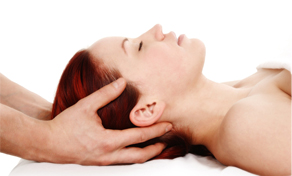Physiotherapy and Osteopathy Treatment for Bell’s Palsy and Peripheral Facial Palsy at Your Home in London or at our Practices in Moorgate Monument EC2, Belgravia Westminster SW1 or Clapham SW4. Treatment and Rehabilitation for Bell’s Palsy in London
Our Physiotherapists and Osteopaths in London are Specialized in the Treatment and Rehabilitation of Bell’s Palsy
Bell’s Palsy and peripheral facial palsy is a lesion, or inflammation of the lower facial nerve, underneath it’s nucleus. The result of this lesion is a paralysis of any structures that are serviced by the nerve. Sufferers of this conditions may find that they are experiencing decreased facial sensitivity, loss of taste or a corner of the mouth situated lower than the other. These are just a few of the symptoms of Bell’s Palsy; if you have any concerns then please call us at London Home Visit Physiotherapy to discuss.
The physiotherapists and osteopaths at London Home Visit Physiotherapy have many years’ experience in working with patients with Bell’s Palsy and peripheral facial palsy, and each has a gentle and caring manner, with high knowledge in their areas of expertise. For Bell’s Palsy, physiotherapy and osteopathy have good results to reduce symptoms. Cranial osteopathy techniques help to rebalance the tensions around the facial nerve pathway and physiotherapy helps to retrain and stimulate muscles.
If you are an Axa or Bupa patient, you cannot book online. Please call our office with your authorisation number.
If you cannot find an appointment that suits you, call us or send us a message: we will do our best to find you a slot.
Bell’s Palsy Treatment and Rehabilitation at your home or at our practices in Moorgate Monument EC3, Belgravia Westminster SW1 or Clapham SW4
For your convenience, we can visit you at your home in London throughout the week and during the evenings too. However, we also offer treatment at any of our practices: the Light Centre Belgravia SW1 in Westminster, near Victoria station, the Light Centre Monument EC3 between London Bridge and Bank Stations and our practice in Clapham SW4 between Clapham south and Clapham common Stations.
We are recognized by health insurance companies and Bupa and AXA PPP (Unfortunately Bupa does not cover for osteopathy treatment)
To book Bell’s Palsy treatment with our physiotherapists and osteopaths call us on 0207 125 0262 / 0782 455 3765
More information about Facial & Bell’s Palsy Osteopathy and Physiotherapy Treatment
How can osteopathy help for peripheral facial palsy?
Osteopathy and physiotherapy can be used as a first-line treatment for some form of Bell’s Palsy. At London Home Visit Physiotherapy, our therapists will always start by an assessment in order to tailor a specific treatment, We will usually use gentle cranial osteopathy techniques which help to rebalance the tensions around the facial nerve pathway then work in team with our physiotherapist to retrain and relax muscle around the area. Our therapists will provide a bespoke treatment plan for your care not only during appointments, but also so that you may continue to maximise the benefits of your treatment at home.
Symptoms and Recognition of Bell’s Palsy and Peripheral Facial Palsy
There are many symptoms associated with Bell’s Palsy and Peripheral Facial Palsy, however some of the most recognisable will be found at the motor level. A sufferer’s facial symmetry will be affected, with one eye more open that the other, and perhaps not able to close at all. One corner of the mouth may also sit lower than the other and a patient’s wrinkles on their forehead may well disappear. Less recognisable symptoms of Bell’s Palsy can also include a lost of taste and sensation, extremely dry eyes and a decreased sensitivity in the face.
Causes of Bell’s Palsy and Peripheral Facial Palsy
Bell’s Palsy is the most common cause of peripheral facial palsy and refers to facial paralysis due to unknown causes. There can be several other causes relating to facial paralysis, such as physical trauma, especially after a fracture of the temporal bone. The herpes-zoster virus has also been known to affect the nerves related to the paralysis, as well as diabetes. If you have had recent surgery near the nerve area you may also experience facial paralysis, or if a tumour has affected the area.
If you are an Axa or Bupa patient, you cannot book online. Please call our office with your authorisation number.
If you cannot find an appointment that suits you, call us or send us a message: we will do our best to find you a slot.




